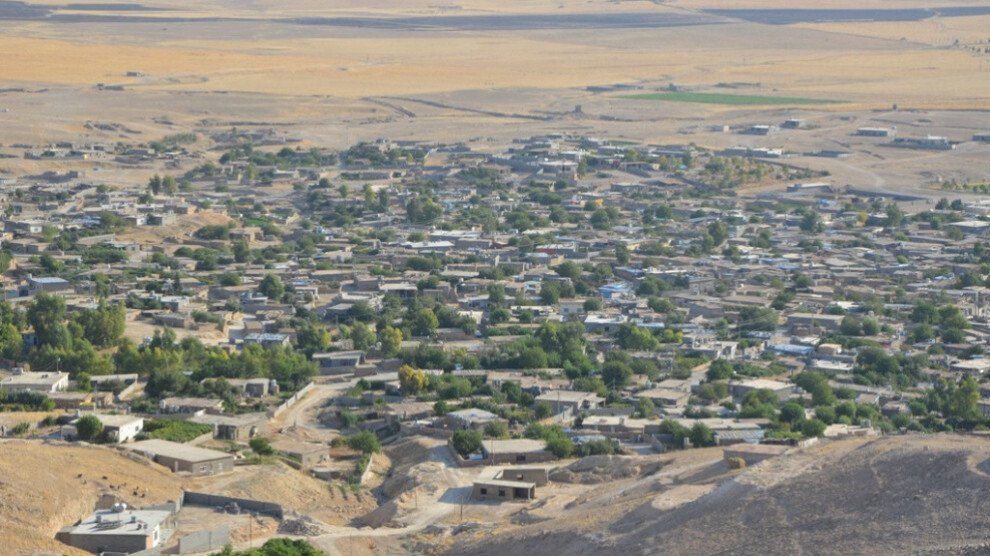As the Turkish–PKK Peace Process Advances, Makhmour Refugee Camp Set for Evacuation

The Iraqi government has intensified its pressure on the Makhmour refugee camp amid reports that, as part of the ongoing Turkish–PKK peace process, a tripartite mechanism comprising Turkey’s National Intelligence Organization (MİT), the Kurdistan Regional Government (KRG), and Iraq’s central government has been established to oversee the camp’s evacuation. A letter, said to be from the PKK’s jailed leader Abdullah Öcalan and addressed to the camp, stated: “No doubt, as this process advances, our people’s return to their own lands will take place.”
Context: Makhmour camp was established in 1998 at the foot of Qarachogh Mountain, east of the town of Makhmour, to host Kurdish refugees fleeing conflict in Turkey. The camp houses approximately 9,000 people and has long been viewed by Turkish officials as a PKK stronghold—described by Turkey as the group’s “incubation hub” where cadres and members are recruited and leaders take refuge.
Analysis: According to Turkish pro-government journalist Abdulkadir Selvi, preparations for the camp’s evacuation are already underway within the framework of the newly formed tripartite mechanism on PKK disarmament. PKK commander Murat Karayılan confirmed in an August 9 statement to the group’s media outlet that PKK military forces had withdrawn from the camp, saying: “We withdrew from there as military forces and handed over our positions to them so that no pressure would be placed on the Iraqi state and everything would be done legally.”
Meanwhile, Abdullah Öcalan also reportedly sent a letter to the Makhmour Camp, stating: “No doubt, as this process advances, our people’s return to their own lands will take place. However, it must be understood that personal and familial considerations should not take precedence.”

Turkey’s desire to dismantle the Makhmour camp predates the recent peace process by many years. The Turkish government has long pushed for the camp’s residents to be relocated to third countries, believing the facility serves as both a recruitment ground for the PKK and a safe haven for its leaders. Makhmour has been under siege for years, even before the Iraqi government retook control of the area from KDP forces in 2017. Prior to that, the KDP had begun blockading camp residents from traveling to Erbil or Duhok after a Turkish diplomat was assassinated in Erbil, with KDP security suspecting the perpetrator came from the camp.
More recently, the Iraqi government—which controls the area surrounding the camp while the camp itself remains under the control of a resident committee—imposed a blockade in April. In May, Iraqi security forces arrested a five-member delegation from the Makhmour refugee camp that had traveled to Baghdad to appeal for the lifting of the blockade. Ironically, this crackdown by Baghdad occurred just as the PKK announced its decision to lay down arms.
Biwar Amin, a member of the Makhmour Camp Relations Committee, told local media: “Our residency permit has expired for two years, and Iraq is not renewing it under any new pretext. This has caused our educational and health services to become inadequate, and we cannot work.” He explained: “They want to blockade the camp’s surroundings, while all the camp’s gates are closed and we can only move within Makhmour itself. To travel to other areas, we must obtain permission and follow very strict procedures.”
As part of the PKK-Turkey peace process, a commission has been formed in the Turkish parliament to prepare the legal groundwork within the next two months to finalize a settlement. This development is expected to pave the way for most camp residents to return to Turkey, given that the majority have had no direct involvement in PKK clashes with Turkish forces. However, the growing complexity of issues surrounding the camp demonstrates how multi-faceted and complicated the peace process is, extending far beyond the mere disarmament of a group with seasoned fighters.









